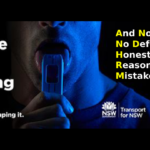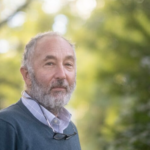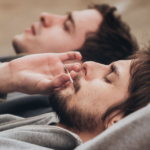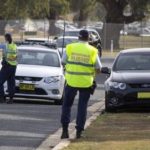Drug Driving in NSW: Lawful Cannabis Use and Honest Mistake Are No Defence
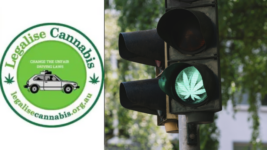
The medicinal cannabis industry in Australia was long criticised for its slow laborious movement towards accessible product.
However, over recent years, the snail pace has developed into a gallop, as the nation, it was announced in January, has now one million people using the lawfully prescribed treatment.
This means that people who were treating ailments with cannabis medicine long before the Turnbull government passed legalising legislation in 2016, can now access such medicines without fear of arrest or conviction.
Indeed, it was black market cultivators, manufacturers and patients that led the campaign to see this long-demonised plant, which can be used to treat a wide range of conditions in a manner that avoids some of the side effects caused by regular pharmaceutical products, made lawful.
But whilst medicinal cannabis users are no longer considered criminals by the authorities due to the medicine they take, 3.9 percent of the entire nation’s population are, at least some of the time, breaking the law when driving in all jurisdictions nationwide, except for Tasmania.
And in the state of NSW, the courts have just delivered a ruling which means if a person using cannabis medicine prescribed to them tests positive for the drug in their system, regardless of any present impairment, they’re technically breaking the law and have absolutely no defence for this.
Long identified as dodgy
In the years prior to legal medicinal cannabis, driving with it in one’s system was illegal and when the prospect of lawful medicine arose, the question about how this would upset drug driving regimes was discussed, with some suggesting it was a reason the authorities were resisting the reform.
The issue with drug driving in most places in Australia is that the technology used does not, like random breath testing (RBT) for alcohol, ascertain whether a driver is affected or impaired by the substance they’ve tested positive for, as the devices only search for presence in a person’s system.
Section 111 of the Road Transport Act 2013 (NSW) contains the offence of drug driving, or driving with presence of certain drugs (other than alcohol) in oral fluid, blood or urine, which means that substances tested for only need to appear in a driver’s system to indicate a positive result.
RBT is based on scientifically proven levels of alcohol in a driver’s system that show they’re too drunk to drive, and it even presents different levels of intoxication relating to rising dangers posed to road safety. But in the case of other drugs, they’re presence after intoxication is also outlawed.
Not only does the offence of drug driving neglect to ascertain whether a driver poses a present danger on the road, but it only tests for the presence of four prescribed illicit substances: THC, the psychoactive substance within the cannabis plant, as well as amphetamines, MDMA and cocaine.
And since May 2019, a first-time drug driving offence can result in a 3-month licence disqualification period and an on-the-spot fine of $572, which means that offenders avoid going to court, and as well, this penalisation occurs regardless of the quantity of a drug in a driver’s system.
If the offender decides to challenge the matter in court, it can result in a fine of $2,200 and a 6-month licence disqualification period, yet this is less likely to occur since the recent court ruling.
And second or subsequent incidents carries up to a $3,300 fine with a 12-month licence disqualification period applying.
A medicinal cannabis driving defence
All drugs tested for result in traces in a person’s system for at least some period after their effects have worn off. And in regard to THC, or the psychoactive part of cannabis, this can be found in a person’s system from anywhere up to a few days after consumption to a few months later.
So, when the Turnbull government passed laws setting up a lawful cannabis supply chain, the obvious response to have expected is that state and territory governments would legislate a defence in regard to traces of the legal medicine appearing in a driver’s system.
But the only jurisdiction that provides such a defence to driving is Tasmania, which confirmed this to be the case in July 2021, while in other jurisdictions, like South Australia and NSW, minor party attempts to secure such a defence have been repeatedly knocked back.
Currently, NSW Legalise Cannabis MLC Jeremy Buckingham has the Road Transport Amendment (Medicinal Cannabis) Bill 2023 before parliament, which seeks to ensure that those who use cannabis medicine are able to drive when they’re not impaired by it, just like all other prescription drugs.
“The fact of the matter is that hard working people are being unduly burdened with the current roadside drug testing laws in NSW,” Buckingham told Sydney Criminal Lawyers.
“Testing for presence is not a true indicator of impairment, and the Legalise Cannabis Party is actively seeking to amend these outdated rules to fall in line with public expectations.”
The bill proposes to insert subsection (1A) into section 111 of the Road Transport Act, so that those testing positive to cannabis driving, with no other drug in their system, have a defence from prosecution, as long as the substance was obtained via prescription.
No excuse cannabis driving
“Cannabis is a legally prescribed medicine so why is it not treated like other medications that can affect one’s cognitive ability?” Buckingham questioned.
Yet, as of last month, the situation for medicinal cannabis users, and indeed, for all drivers in NSW, has worsened, as the NSW Court of Criminal Appeal confirmed in Narouz that drug driving is an absolute liability offence, meaning the defence that had existed to the law no longer does.
And that had been the defence of honest and reasonable mistake.
Former NSW Magistrate David Heilpern made headlines mid-last decade, when he delivered a series of rulings, which saw drivers charged with cannabis driving subsequently being acquitted due to their reasonable and honest mistake.
The most famous ruling involved the acquittal of Joseph Carrall, who was found not guilty of cannabis driving in early 2016, as he made an honest mistake, having not driven for nine days after smoking a joint on the advice given to him by a police officer.
And up until a July 2023 appeal of a ruling against Mina Narouz for drug driving was made by NSW District Court Judge Mark Buscombe, medicinal cannabis users were able to fall back on this defence, but now they have no excuse for driving and using their prescribed medication.
“The impact of these laws can be significant. It can lead to unjust penalties for individuals who are not actually impaired while driving,” Buckingham said in conclusion.
“Losing a licence or facing other penalties can have serious consequences on livelihoods, especially for those whose jobs depend on driving to work.”


